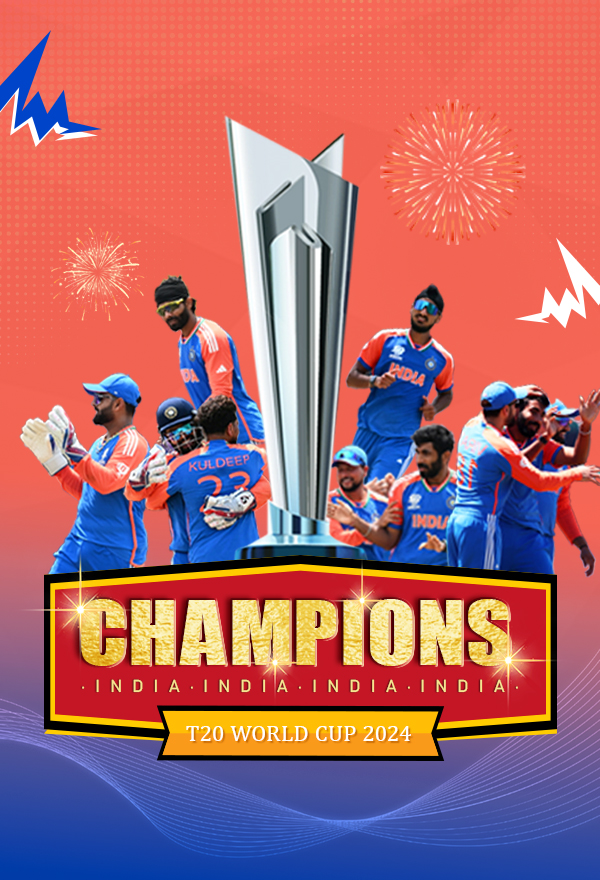
sanjeev
khelja|30-04-2025
“Comparison is the thief of joy.” Yet that's exactly what we're doing in the wake of 14-year-old Vaibhav Suryavanshi's sensational 35-ball century in the IPL. As the young prodigy bludgeoned bowlers twice his age under the glittering lights of the Sawai Man Singh Stadium in Jaipur, admiration rightly poured in.
But so did an age-old reflex that we, as a society, still haven't unlearned-comparison.
"What were you doing when you were 14?"
This question, now doing the rounds on social media, may seem harmless on the surface. But it carries a quiet menace-a threat to individuality, a burden of expectation.
For in India, the success of one child often becomes the benchmark for all others. In drawing rooms and WhatsApp groups, it won't be long before parents ask their children: If Vaibhav can do this at 14, what are you doing at 16?The problem isn’t Vaibhav-he deserves every ounce of applause. The problem lies in what we do with his story. We weaponize it. We turn it into a stick to beat down the spirits of children who are still discovering who they are. If this sounds familiar, it's because many of us grew up with similar pressures. "Why only 80% when Sharma ji's son got 100%?" "Why aren't you in the top ten?" "Everyone in the society goes to this coaching class; why don't you?"
We see parenting as a competitive sport, where your child's achievements validate your worth. If the neighbour's son is a budding cricketer, yours must at least be a promising coder. If Vaibhav has signed an IPL contract at 14, the countdown begins for every other teen with a bat in hand.
In the process, we ignore a fundamental truth-not every child is meant to be a Vaibhav Suryavanshi. And that's perfectly okay.
For every outlier like him, there are thousands of children who will come into their own at 18, 21, or even later.
Some are born gifted; others build themselves through persistence. Some are meant for the stage, some for the lab, others for a quiet, fulfilling life doing what they love. Why must we all walk the same path to be seen as successful?The pressure to replicate extraordinary stories like Vaibhav's often leads not to inspiration, but to anxiety. Mental health, already fragile in our overcompetitive ecosystem, takes a backseat. Childhood becomes a checklist. Joy is replaced by performance. Dreams are crushed under the weight of borrowed ambition.
Even in the 1990s, Sachin Tendulkar became our collective obsession. "If he could face Waqar and Wasim at 16, why can't you?" was the unspoken question then for almost all budding cricketers. But how many Tendulkars did we really produce? The truth is, success at a young age is not a necessity-it's an exception.
Let's not turn Vaibhav's brilliance into another rat race. Let it be what it truly is: a celebration of talent, discipline, and support. His parents didn't set out to make him a star; they simply stood behind him. That, perhaps, is the greatest lesson for all of us.
Children aren't moulds to be filled with achievements. They are canvases-each waiting to be painted in their own hues. Some bloom early, some late. All deserve to be celebrated. Let your child dance, draw, run, code, or simply be. The IPL dream may not be theirs-and it needn't be. Success is not a one-size-fits-all jersey. In a class of 14-year-olds, one may ace physics, another may write poetry, and one may hit sixes like Vaibhav. Each is a story worth telling.Don't turn childhood into a project. Don't parent to impress your social circle. Don't copy-paste another child's journey onto yours.
Applaud the extraordinary, but protect the ordinary joy of growing up. For every child deserves a chance to shine-on their own terms, at their own pace.

“Can't Thank Bihar Cricket and Rahul Dravid Enough”: Vaibhav Suryavanshi's Father

Vaibhav Suryavanshi’s fake profile wreaks havoc with reply to Sachin Tendulkar, X forced to take action

Shubman Gill’s Remarks On 14-Year-Old Vaibhav Suryavanshi’s Century Draw Criticism

IPL 2025: Vaibhav Suryavanshi’s record-breaking 38-ball 101 in stats







